The relationship between fraternal life and apostolic activity, in particular within the institutes dedicated to works of the apostolate, has not always been clear and had all too often led to tension, both for the individual and for the community. For some, “building community” is felt as an obstacle to mission…All must be reminded that fraternal communion, as such, is already an apostolate; in other words, it contributes directly to the work of evangelization. The sign par excellence left us by Our Lord is that of lived fraternity: “By this all will know that you are my disciples, if you have love for one another.” Jn 13:35 …“the effectiveness of religious life depends on the quality of the fraternal life in common” (Fraternal Life in Community, no 54).
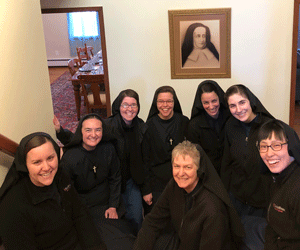
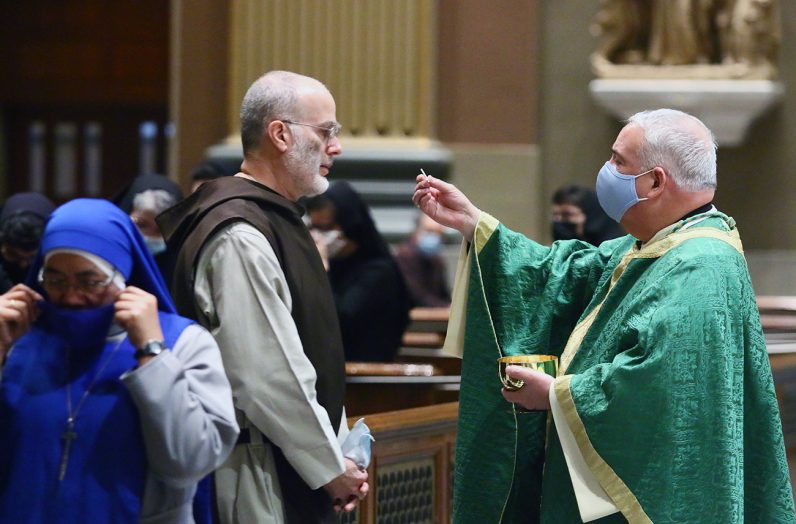
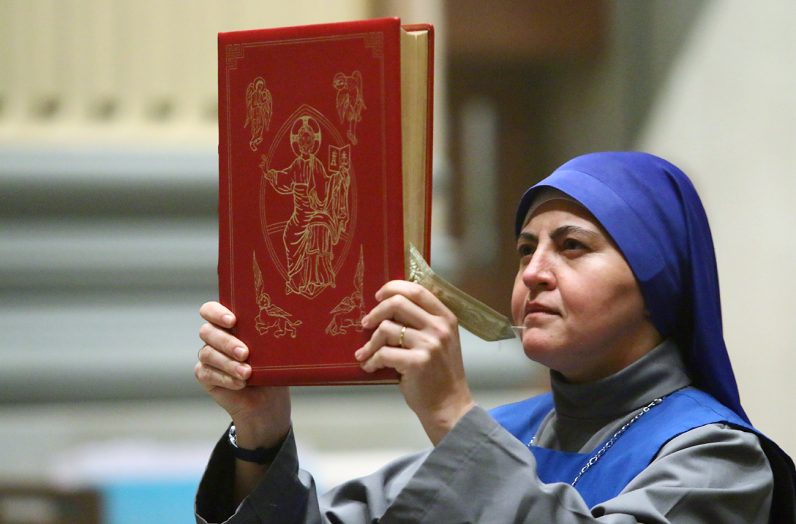

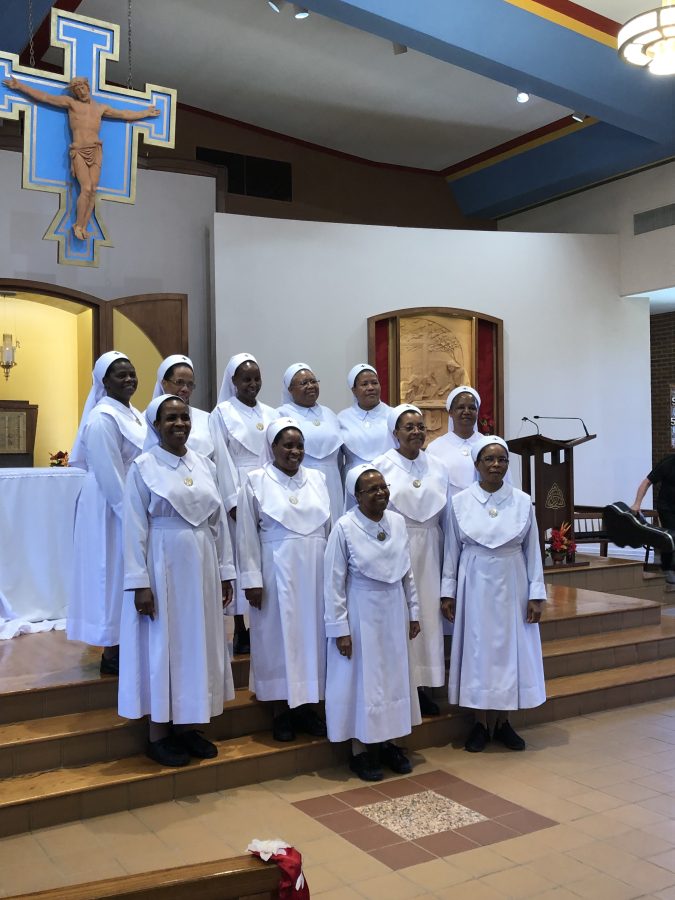
*******************************************************************************************************************
Apostolic religious congregations develop their own traditions based on the original vision of their founders or foundresses, while continuing to focus their ministries to meet the needs of the Church today. While every religious congregation is unique, together they form a rich source of inspiration for the entire Church.
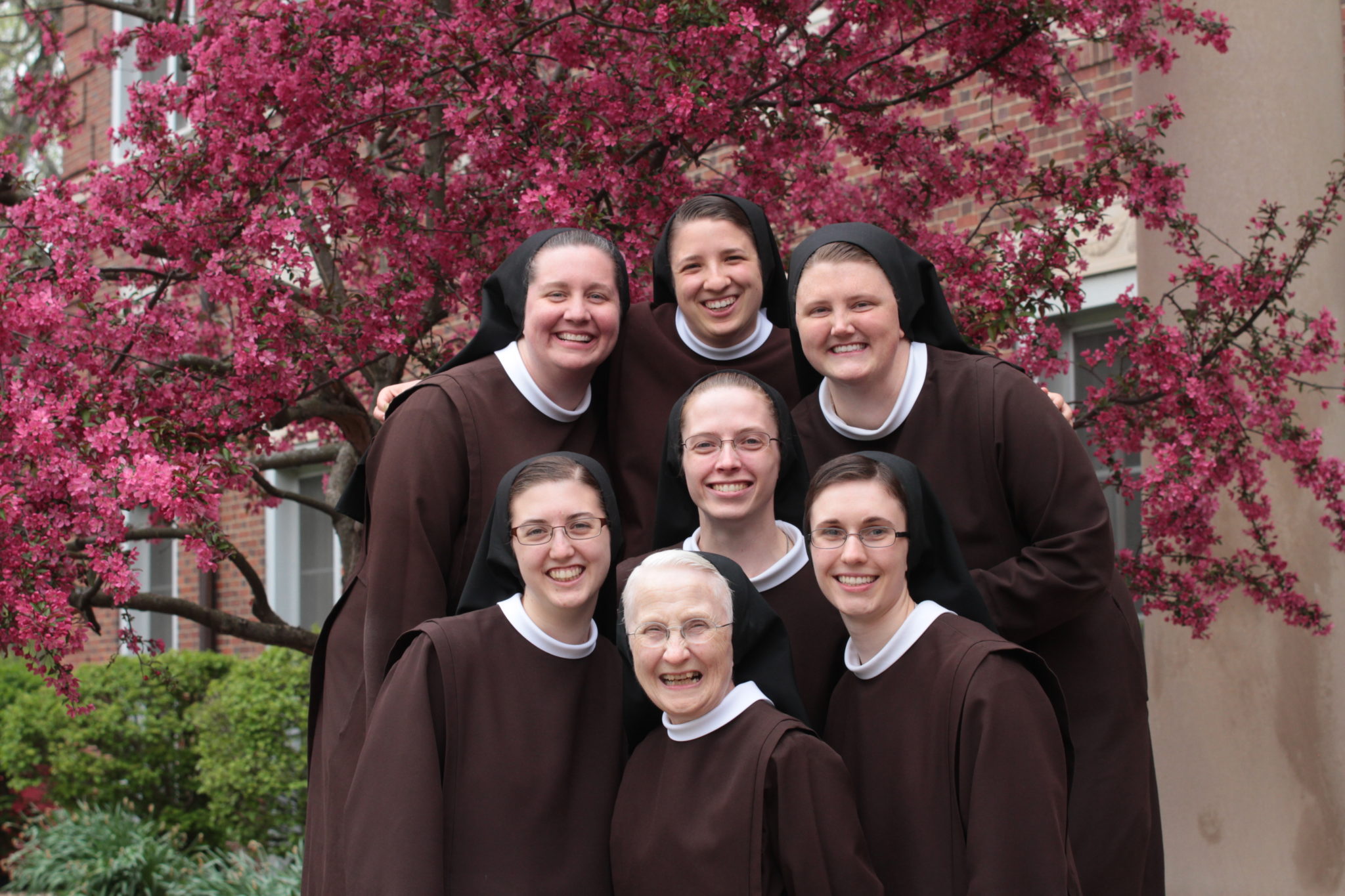
In his Apostolic Exhortation Vita Consecrata, Pope John Paul II described the apostolic religious communities as “a splendid and varied testimony, reflecting the multiplicity of gifts bestowed by God on founders and foundresses who, in openness to the working of the Holy Spirit, successfully interpreted the signs of the times and responded wisely to new needs. Following in their footsteps, many other people have sought by word and deed to embody the Gospel in their own lives, bringing anew to their own times the living presence of Jesus, the Consecrated One par excellence, the One sent by the Father. In every age consecrated men and women must continue to be images of Christ the Lord, fostering through prayer a profound communion of mind with him (cf. Phil 2:5-11), so that their whole lives may be penetrated by an apostolic spirit and their apostolic work with contemplation.”
Our hidden life is a prayer
for the missions and an intercession for the world.
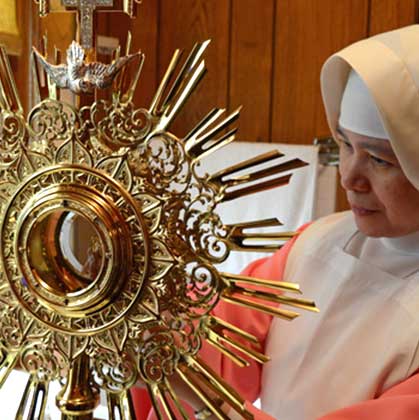
“Your life is hidden with Christ in God.”
-Colossians 3:3
“Heaven and Earth in Little Space”
Cloister
The mystery of the contemplative life is woven tightly with the mystery of the Incarnation. This mystery finds an especially vivid expression in the life of a cloistered nun, when a woman chooses to spend her whole life within the walls of a monastery, hidden from the world for the sake of intimacy with God. The cloister is a shocking thing, and sometimes non-Christians (and Christians!) are scandalized by it. But even more shocking is the idea that an infinite God chose to take on a finite human nature, to confine Himself within the limits of the created world, which, to Him, must have seemed far, far smaller than the bounds of a cloistered monastery!
Papal Cloister

Poor Clares of Langhorne, PA
Papal cloister is the strictest form of enclosure, in which a nun does not leave the boundaries of the monastery except for serious reasons. The norms defining papal enclosure are given by Rome. The most recent instruction on papal cloister is the 2018 document Cor Orans, which implements what Pope Francis outlined in his 2016 Apostolic Constitution Vultum Dei Quaerere.Cor Orans states: “The law of papal cloister extends to the dwelling and to all the interior and exterior spaces of the monastery reserved exclusively for the nuns in which the presence of strangers can be admitted only in case of necessity. It must be a space of silence and recollection, facilitated by the absence of external works, where the permanent search for the face of God can develop more easily, according to the Institute’s charism.”
Some of the orders which traditionally practice papal cloister are: Carmelite Nuns, Poor Clares, Dominican Nuns, Visitandines, Holy Spirit Adoration Sisters, and Handmaids of the Precious Blood.
Constitutional Cloister
Constitutional cloister is a form of cloister defined by the norms in the Rule and Constitutions of the individual order. It is generally less strict than papal cloister. This type of cloister is practiced if the community’s charism joins to their life of contemplation some kind of apostolic or charitable work. They are still cloistered nuns, but they may have an apostolate attached to the monastery–such as a retreat house–which would be impossible to carry out if they practiced papal enclosure. Cor Orans says of constitutional cloister: “It must be a space of silence and recollection, where the permanent search for the face of God can develop, according to the charism of the Institute, in consideration of the works of apostolate or charity exercised by the nuns” (n. 205).
Some of the religious orders which traditionally practice constitutional enclosure are: Passionist Nuns, Sisters Adorers of the Precious Blood, and Norbertine Canonesses.
Monastic Cloister

Benedictine Monks of Norcia
Monastic Cloister is “a special expression of the constitutional cloister” (Cor Orans n. 211), one of the most ancient forms of contemplative life. Monastic cloister refers to forms of contemplative life which have always had a charism of hospitality, such as those stemming from the Benedictine tradition. This means guests may be invited to stay at the monastery, and the nuns interact with them much more freely than nuns who practice papal cloister. “For monasteries of contemplative nuns, the monastic cloister, while retaining the character of a more rigorous discipline than the common one, makes it possible to associate the primary function of divine worship with wider forms of reception and hospitality” (Cor Orans n. 210).
Some of the religious orders who traditionally profess monastic cloister are: Benedictine Nuns, Cistercian/Trappistine Nuns, Sisters of Mary Morning Star.
Vows
The three evangelical counsels of chastity, poverty, and obedience are the vows that are professed by members of religious congregations. Together, they form the basis for living a life of radical consecration to God for the good of the Church. The vow of chastity frees the sister to give herself in love totally to Christ and His Body and is marked by aliveness and a spirit of joy. The vow of poverty frees the sister to dispossess her possessions in order to grow into a deeper spirit of self-giving. In living the vow, the sister depends on the community for her needs as all things are held in common. The vow of obedience frees the sister to do the will of God as expressed by her superiors who seek always what is best for the sister and for the community as a whole.
Pope John Paul II in Vita Consecrata describes the evangelical counsels in light of the Trinity:
“The chastity of celibates and virgins, as a manifestation of dedication to God with an undivided heart (cf. 1 Cor 7:32-34), is a reflection of the infinite love which links the three Divine Persons in the mysterious depths of the life of the Trinity, the love to which the Incarnate Word bears witness even to the point of giving his life, the love ‘poured into our hearts through the Holy Spirit’ (Rom 5:5), which evokes a response of total love for God and the brethren.
Poverty proclaims that God is man’s only real treasure. When poverty is lived according to the example of Christ who, ‘though he was rich … became poor’ (2 Cor 8:9), it becomes an expression of that total gift of self which the three Divine Persons make to one another. This gift overflows into creation and is fully revealed in the Incarnation of the Word and in his redemptive death.
Obedience, practiced in imitation of Christ, whose food was to do the Father’s will (cf. Jn 4:34), shows the liberating beauty of a dependence which is not servile but filial, marked by a deep sense of responsibility and animated by mutual trust, which is a reflection in history of the loving harmony between the three Divine Persons” (par 21).
Charism
Each religious congregation is blessed by a unique gift of the Holy Spirit called a “charism,” which is an expression of the way the congregation is called to follow Christ. A religious community’s charism is expressed in its way of serving the Church in mission, its particular way of living community life and its distinct “culture.” A myriad of charisms forms a fabric of ministries within the Church to meet multitudinous needs.
Spirituality
Within the Catholic Church there is a variety of spiritualities stemming from spiritual leaders of the past. Dominican, Franciscan, and Marian spiritualities are three of the many that are known within the Church. These specific spiritualities refer to systems of values, ideals, and a unified manner of life passed down through the ages from St. Dominic, St. Francis, and St. Theresa. Each spirituality focuses on specific virtues or spiritual priorities, which characterize the way of life of those living within the legacy of the spiritual leader.
The spirituality of a religious congregation makes present in a lived and vibrant way the spiritual values passed on to each generation from the original source. There are numerous spiritual approaches to living the truths of the Catholic Church and the vows of religious life. Devotions, ways of prayer, priorities of mission, and lived expressions in daily life are manifestations of the spirituality embraced by a religious community.
Eremetic Life–Without always professing the three evangelical counsels publicly, hermits “devote their life to the praise of God and salvation of the world through a stricter separation from the world, the silence of solitude and assiduous prayer and penance.”
Consecrated Virgins–From apostolic times Christian virgins, called by the Lord to cling only to him with greater freedom of heart, body, and spirit, have decided with the Church’s approval to live in the respective states of virginity “for the sake of the Kingdom of heaven.”
What is the United States Association of Consecrated Virgins?
The United States Association of Consecrated Virgins (USACV) is a voluntary association for women in the United States who have received the Consecration of Virgins for women living in the world, according to the pertinent provisions of Canon Law. The Association is formed in accord with Canon 604.2, “Virgins can be associated together to fulfill their pledge more faithfully and to assist each other to serve the Church in a way that befits their state.”
The objectives of the association:
The USACV has as its primary purpose to foster communication, solidarity, and support among United States consecrated virgins. The USACV and International Resource Center for the Ordo Virginum (IRC) operate as one organization to offer educational materials and programs of education about the vocation, as well as to encourage study and growth of understanding of the vocation of consecrated virginity lived in the world.
Information Packet on the Vocation of Consecrated Virginity
Click here to download the full 2011 Information Packet
The United States Association of Consecrated Virgins has prepared an Information Packet to facilitate the discernment process for the vocation to consecrated virginity for women living in the world. The Information Packet was revised in May 2021 and is 416 pages in length. Access a pdf of the 2011 version of the Information Packet above or order a bound, print copy of the 2021 version from the USACV through the online store or by completing and mailing the order form.
Secular Institutes–“A secular institute is an institute of consecrated life in which the Christian faithful living in the world strive for the perfection of charity and work for the sanctification of the world especially from within.”
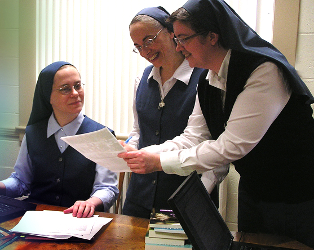
Societies of Apostolic Life–Alongside the different forms of consecrated life are “societies of apostolic life whose members without religious vows pursue the particular apostolic purpose of their society, and lead a life as brothers or sisters in common according to a particular manner of life.
Contact
Sister Gabrielle Mary Braccio, RSM
Delegate for Consecrated Life
222 North 17th Street
Philadelphia, PA 19103-1299
10th Floor Room 1029
Phone: 215-587-3795
Email: [email protected]






